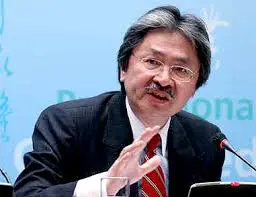Japan has been stepping up its economic activities in Myanmar since the beginning of this year, especially after the visit of Japanese Deputy Prime Minister and Finance Minister Taro Aso, a highest-ranking Japanese official to have come to Myanmar since a civilian government is installed in the Southeast Asian nation.
Aso, who is also a member of Japan's Lower House, told Myanmar President U Thein Sein in Nay Pyi Taw that Japan would provide assistance to Myanmar for development of nationalities affairs and public's social status, human resources developmentfor better administrative system and development of basic infrastructure.
The two countries vowed to cooperate in various sectors including industry, investment, transport and development of small and medium enterprises.
Significantly, Myanmar's Thilawa Special Economic Zone in Yangon's Kyaukthan township is among Japan's prospective investment projects.
Encouraged by Aso's inspection of the site of the Thilawa Special Economic Zone, five more Japanese companies are intending to join investment in building infrastructure and establishing factories in the zone, disclosed the Directorate of Investment and Company Administration.
Senior officials from such Japanese firms as Oshimaya Co., Marubeni Corp., ASMO Co. Ltd, JFE Engineering Corp. and METACC Manufacturing Ltd, who visited Myanmar recently, revealed their interest.
The companies' discussions with its Myanmar counterparts covered project ofbuilding electricity power plant, auto parts plant, textile, manufacturing, and iron and steel plant, reports said, adding that the companies were also interested in Dawei special economic zone in southern Myanmar.
Thilawa SEZ project, which includes factories, high-tech industry, textile, labor intensive industry and manufacturing industry, will be jointly developed by Myanmar and Japan with Myanmar holding 51 per cent stake andJapan with 49 per cent's, U Set Aung, Chairman of Thilawa SEZ Management Committee, told Xinhua recently.
Myanmar, being responsible as the developer of Thilawa SEZ, has to finance the construction of infrastructures such as power station, roads and bridges outside Thilawa SEZ.
Japan is said to provide 40-year loans at an interest rate of 0. 01 per cent if Myanmar lacks enough finance to establish necessary infrastructures outside Thilawa SEZ.
Thilawa SEZ project covering an area of over 2,000 hectares lies between Thanlyin and Kyauktan townships in Yangon region, which is next to the Dawei Special Economic Zone project in southern Taninthayi region.
Japan is expected to be among top five investors in the country by 2015, experts estimated.
Japan's investment in Myanmar amounted to 259.86 million U.S. dollars as of the end of2012 since Myanmar opened to such investment in late 1988 and standing the 12th in Myanmar's foreign investment line-up.
As part of its promotion of investment in the transport sector, Nippon Express, Japan's biggest logistics services company, has opened its representative office in Yangon to offer services to land, air and marine transport logistics services as well as local services.
Meanwhile, Japan's second largest automobile company of Nissan Motor is planning to build an automobile assembly plant in Myanmar following the opening of its spare parts and service center in 2011.
Moreover,Keidanren (Japan Business Federation) and the Union of Myanmar Federation of Chambers of Commerce and Industry (UMFCCI) signed in February a memorandum of understanding on promotion of economic cooperation including trade, investment and technological cooperation between the two nations.
Keidanren and UMFCCI will cooperate for establishment of a framework (Joint Initiative) to formulate an action plan and evaluate the implementation through the joint efforts of the public and private sectors of the two countries.
The two organizations will also cooperate for the launching Myanmar-Japan Center for Human Resources Development to develop business human resources in the country.
In the latest development, Myanmar parliament approved in February Official Development Assistance (ODA) loan worth about 66 billion Yen (704.28 million U.S.dollars) from Japan International Cooperation Agency(JICA).
JICA will grant aid package including 17 billion yens for infrastructure projects which will help alleviate poverty in states and regions, 20 billion yens for the first step of the development of infrastructure for the Thilawa Special Economic Zone, 29 billion yens for infrastructures for power supply in Yangon and for upgrading Kyangin cement plant.
Recently, Myanmar announced clearing the due debt of 502.457 billion yens (over 5 billion U.S. dollars) owed to Japan since 1970 by settling the debt of 198.881 billion yens (nearly 2 billion U.S. dollars) as the new debt.
Those arrears of 303.576 billion yens (over 3 billion dollars) will be written off by Japan within one year period.
As a follow-up, the Japanese government announcedtaking steps to offer very-low-interest rate development loan and assistance to Myanmar which will use in people-centered development.
 简体中文
简体中文

